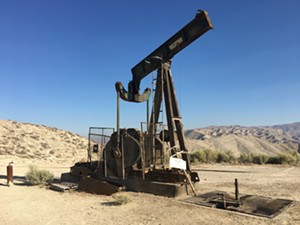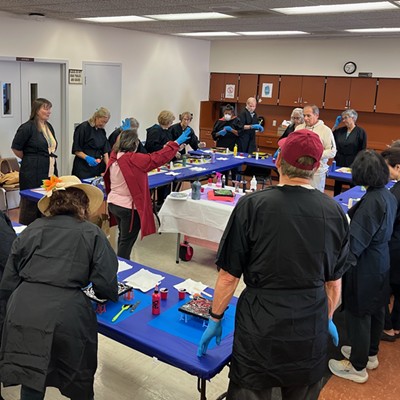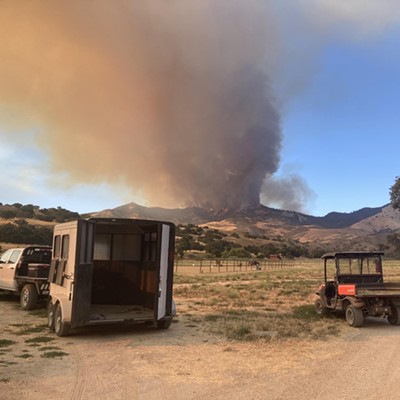About 1,600 of California’s 41,000-plus idle or orphaned oil wells are in Santa Barbara County, according to a new report by environmental nonprofit the Sierra Club.

The California Department of Geologic Energy Management Division (CalGEM) Well Finder database shows that Santa Barbara County had 1,481 idle wells with approximately 35,000 total in the state. According to a CalGEM report compiling well data from 2021, it estimated that 5,265 wells were deserted and 55 wells were orphaned in California.
“For all current orphaned and idle wells, it’s presenting a $10 billion risk to taxpayers if we don’t ensure that oil companies are cleaning them up,” said Jasmine Vazin, a field organizing strategist with the Sierra Club. “The entire well stock [active and idle wells] will be transitioning and that poses a $23 billion risk to cleaning up infrastructure.”
The Sierra Club’s report—“The $23 billion question: What created California’s orphan and idle well crisis?”—looked at Chevron, Aera Energy (a subsidiary of Shell and ExxonMobil until March 2023), and California Resources Corporation; their profits; the number of idle wells each owns, and how much it would cost for them to clean them up.
“This assessment finds that while California’s oil industry may be declining, the profits of its leading idle well holding companies … are not,” according to the report.
In 2022, Chevron, Shell and ExxonMobil, and California Resources made $35.5 billion, $98 billion (with $55.7 billion for Exxon and about $43 billion for Shell), and $13.8 billion in profits, respectively, according to each companies’ annual earnings reports. These companies also hold 68 percent of the idle wells in California, according to the Sierra Club’s report.
“Total profits for the companies directly responsible for the majority of the state’s idle wells in 2022 were 14 times higher than the cost to plug orphan and idle wells in the state ($10 billion) and over six times higher than the amount needed to plug and remediate the state’s entire inventory of unplugged wells at $22.9 billion,” the report stated.
The report followed this by analyzing different policies for idle wells in other oil-producing states—Colorado, North Dakota, Pennsylvania, and West Virginia—that have mandated idle wells be cleaned up within one year of a well being designated as idle, Vazin said. The Sierra Club calls for the state to set a similar policy within the next legislative cycle.
“More and more wells are becoming idle, and current policy allows these wells to sit inactive indefinitely. They [oil companies] can pay fees and create plans for years, but these can sit unmonitored without any strict timelines for cleanup,” Vazin said. “To see the changes and have regulatory teeth to hold this industry accountable, we do need those changes.”
State policymakers have pushed for some changes, with Assemblymember Gregg Hart (D-Santa Barbara) authoring a bill that was signed by Gov. Gavin Newsom this year that updates oil regulations and increases penalty fees for violating the law, according to previous Sun reporting.
Previous bills have increased the bond cost, which oil companies have to take out when drilling wells and act similarly to an insurance policy to help the state cover cleanup costs, from $3 million to $30 million, but the Sierra Club report found that “this authority has yet to be used” by CalGEM.
“As it stands, the current statutory paradigm that is the product of industry lobbying allows operators to keep oil and gas wells idle in perpetuity and pay very little to do so,” according to the report.
In the meantime, idle and orphaned wells are impacting communities and pose an “ongoing, chronic risk” until they are plugged, Vazin added.
“California needs to stand strong against oil industry lobbying and catch up to states that do a better job regulating the cleanup [of] idle wells,” Vazin said.










